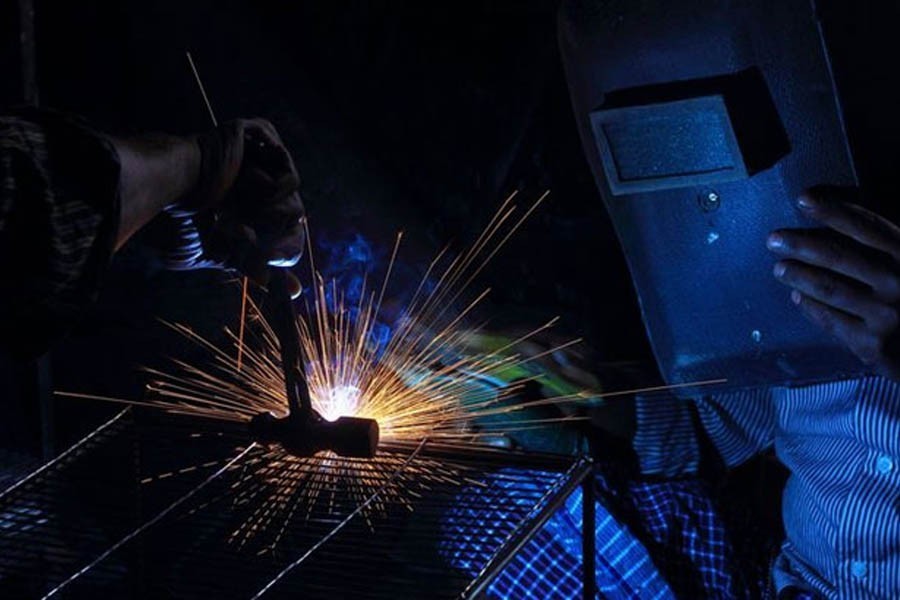The government moves to establish 10 dedicated light engineering industrial parks in eight districts of the country to harness the immense potential of the domestic light engineering industry.
The proposed light engineering industrial parks will be set up on around 2,000 acres of land in Dhaka, Narayanganj, Jashore, Bogura, Narsingdi, Munshiganj, Mymensingh and Madaripur.
"Most of these parks are still at a very early stage of approval," according to a letter sent by the Bangladesh Small and Cottage Industries Corporation (BSCIC) to the industries ministry to inform them of the current phase of the projects.
Earlier, the industries ministries at an inter-ministerial meeting last year decided to build dedicated light engineering industrial parks in five districts--Dhaka, Narayanganj, Jashore, Bogura and Narsingdi.
Later, three more districts were added to promote the light engineering sector, according to BSCIC.
The proposed industrial parks are: BSCIC industrial park, Bogura, BSCIC light engineering industrial park, Sirajdikhan, Munshiganj, BSCIC light engineering and automobile engineering industrial park, Jashore, BSCIC Dhamrai industrial park, Dhaka, BSCIC Belabo industrial park, Narsingdi, BSCIC Trishal industrial park and BSCIC Bhaluka industrial park, Mymensingh, BSCIC industrial park, Madaripur, BSCIC chemical industrial park, Munshiganj and BSCIC Narayanganj industrial park, Narayanganj.
Muhammad Rashedur Rahman, Deputy General Manager (planning) of BSCIC, said the country currently requires around Tk 260 billion worth of light machinery but domestic industries produce Tk 90 billion worth light engineering materials and equipment.
He said the plan to build new light engineering industrial parks came as Prime Minister Sheikh Hasina declared it as the "Product of the Year" last year.
Light engineering enterprises are small firms which produce small machinery, equipment, tools, metallic household appliances or sanitary ware and electrical, electronic, electromechanical and mechatronic products mainly by metals through the engineering and technological process.
The sector started its journey in early 1980s when the demand for mechanical fittings grew with the post-liberalisation industrialisation process.
Mr Rashedur Rahman also said the implementation process of these industrial parks will start very soon once the proposal is approved based on the local administration of respective districts.
Despite having lack of attention of policymakers, some 50,000 light engineering workshops in major cities and towns of the country account for around 50 per cent of import-substitution items, according to industry insiders.
These small workshops, run by self-motivated entrepreneurs who never got any institutional or government support, are currently manufacturing products worth more than Tk 100 billion with local technology as import-substituting spare parts for automobiles and major industrial sectors.
A study conducted by the International Finance Corporation (IFC) in partnership with UK Department for International Development and the Norwegian government, shows that the light engineering sector employs 600,000 people in 50,000 micro-enterprises and 10,000 small and medium enterprises.
Another study carried out by Bangladesh University of Engineering and Technology estimates that this sector comprises around 40,000 enterprises employing around 800,000 people.


